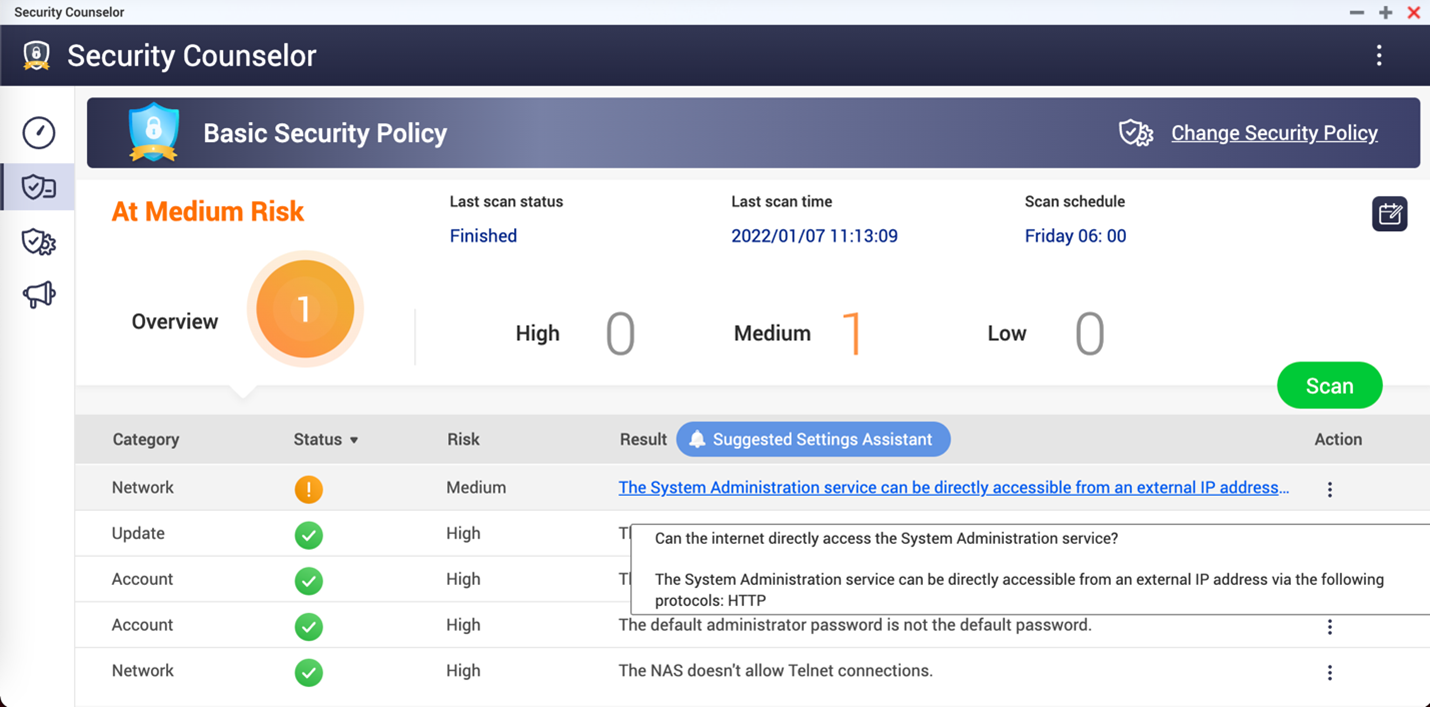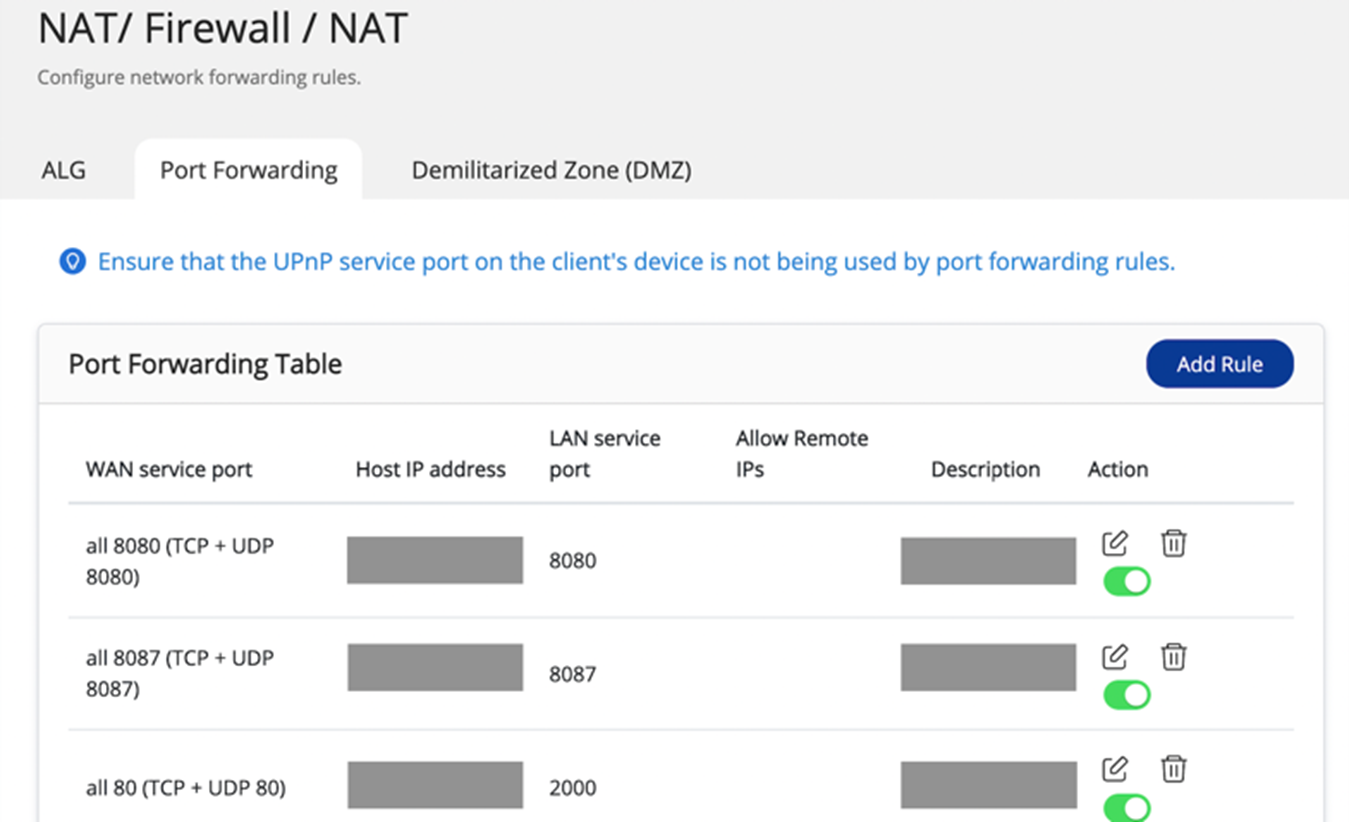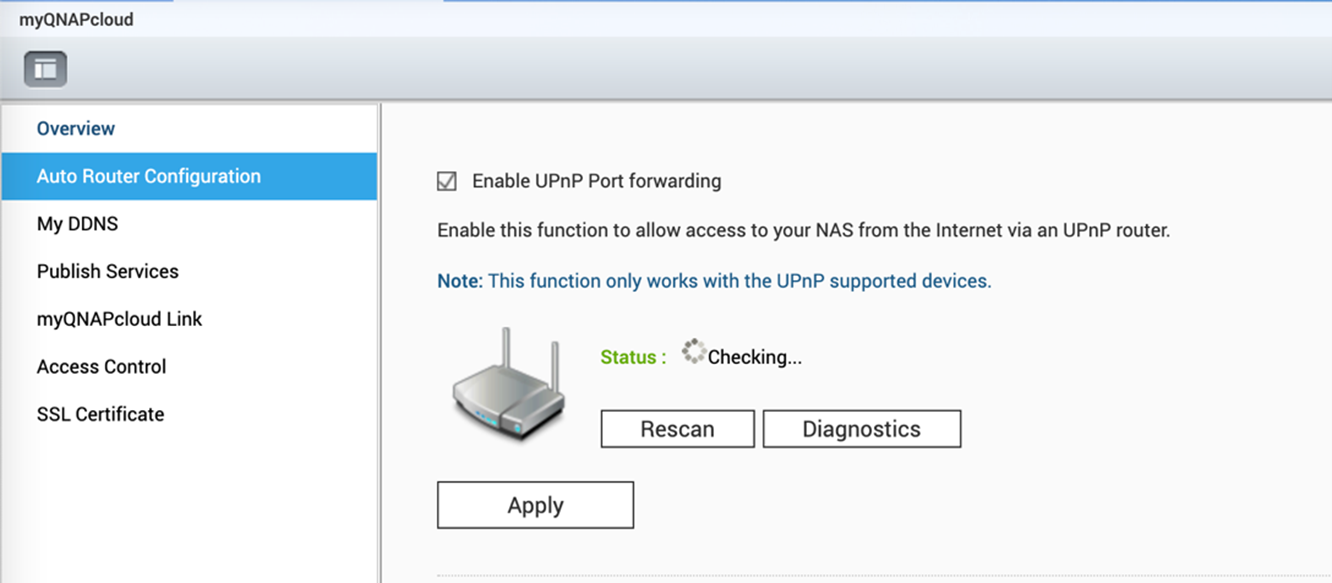QNAP warns of ransomware targeting internet-facing NAS products
The manufacturer has provided a guide to securing vulnerable products amid ongoing attacks


QNAP customers have been advised that cyber attackers are targeting its network-attached storage (NAS) products with ransomware and have been encouraged to secure their devices at the earliest opportunity.
Ransomware and brute-force cyber attacks have been "widely targeting" QNAP's internet-facing NAS products, according to the manufacturer which published a products security statement on Friday.
Best NAS drives 2023: Which network storage appliance is right for you? 12 wonderful uses for a NAS Can you put an SSD in a NAS?
NAS drives that are exposed to the internet without any protection are particularly vulnerable to the attacks and users are advised to revisit their security settings to ensure devices are adequately protected.
The scale of attacks is currently unclear and QNAP also didn't specify what strain of ransomware the attackers are using, or where the attackers are based. IT Pro has contacted QNAP for additional comment.

To check if a NAS drive is vulnerable to the attacks QNAP has observed, users should open the QNAP Security Counselor on their NAS products. The NAS is at high risk if there is an artefact that reads: 'The System Administration service can be directly accessible from an external IP address via the following protocols: HTTP' on the dashboard. QNAP also has a guide for users on how to check which ports on a router are exposed to the internet.
Securing the NAS

The first step to fully protect vulnerable products from the ongoing attacks is to disable the port forwarding function of the router. This can be completed via the management interface of a user's router. Users should check their settings and disable the port forwarding setting of NAS management service port which is set at port 8080 and 433 by default.

Users should finally disable the universal plug and play (UPnP) function of their QNAP NAS product in the QTS menu in myQNAPcloud. To do this, users can navigate to the 'Auto Route Configuration' tab in the QTS menu and unselect 'Enable UPnP Port forwarding'.
Get the ITPro daily newsletter
Sign up today and you will receive a free copy of our Future Focus 2025 report - the leading guidance on AI, cybersecurity and other IT challenges as per 700+ senior executives

Connor Jones has been at the forefront of global cyber security news coverage for the past few years, breaking developments on major stories such as LockBit’s ransomware attack on Royal Mail International, and many others. He has also made sporadic appearances on the ITPro Podcast discussing topics from home desk setups all the way to hacking systems using prosthetic limbs. He has a master’s degree in Magazine Journalism from the University of Sheffield, and has previously written for the likes of Red Bull Esports and UNILAD tech during his career that started in 2015.
-
 Should AI PCs be part of your next hardware refresh?
Should AI PCs be part of your next hardware refresh?AI PCs are fast becoming a business staple and a surefire way to future-proof your business
By Bobby Hellard Published
-
 Westcon-Comstor and Vectra AI launch brace of new channel initiatives
Westcon-Comstor and Vectra AI launch brace of new channel initiativesNews Westcon-Comstor and Vectra AI have announced the launch of two new channel growth initiatives focused on the managed security service provider (MSSP) space and AWS Marketplace.
By Daniel Todd Published
-
 ‘Phishing kits are a force multiplier': Cheap cyber crime kits can be bought on the dark web for less than $25 – and experts warn it’s lowering the barrier of entry for amateur hackers
‘Phishing kits are a force multiplier': Cheap cyber crime kits can be bought on the dark web for less than $25 – and experts warn it’s lowering the barrier of entry for amateur hackersNews Research from NordVPN shows phishing kits are now widely available on the dark web and via messaging apps like Telegram, and are often selling for less than $25.
By Emma Woollacott Published
-
 Healthcare systems are rife with exploits — and ransomware gangs have noticed
Healthcare systems are rife with exploits — and ransomware gangs have noticedNews Nearly nine-in-ten healthcare organizations have medical devices that are vulnerable to exploits, and ransomware groups are taking notice.
By Nicole Kobie Published
-
 Alleged LockBit developer extradited to the US
Alleged LockBit developer extradited to the USNews A Russian-Israeli man has been extradited to the US amid accusations of being a key LockBit ransomware developer.
By Emma Woollacott Published
-
 February was the worst month on record for ransomware attacks – and one threat group had a field day
February was the worst month on record for ransomware attacks – and one threat group had a field dayNews February 2025 was the worst month on record for the number of ransomware attacks, according to new research from Bitdefender.
By Emma Woollacott Published
-
 CISA issues warning over Medusa ransomware after 300 victims from critical sectors impacted
CISA issues warning over Medusa ransomware after 300 victims from critical sectors impactedNews The Medusa ransomware as a Service operation compromised twice as many organizations at the start of 2025 compared to 2024
By Solomon Klappholz Published
-
 Warning issued over prolific 'Ghost' ransomware group
Warning issued over prolific 'Ghost' ransomware groupNews The Ghost ransomware group is known to act fast and exploit vulnerabilities in public-facing appliances
By Solomon Klappholz Published
-
 The Zservers takedown is another big win for law enforcement
The Zservers takedown is another big win for law enforcementNews LockBit has been dealt another blow by law enforcement after Dutch police took 127 of its servers offline
By Solomon Klappholz Published
-
 There’s a new ransomware player on the scene: the ‘BlackLock’ group has become one of the most prolific operators in the cyber crime industry – and researchers warn it’s only going to get worse for potential victims
There’s a new ransomware player on the scene: the ‘BlackLock’ group has become one of the most prolific operators in the cyber crime industry – and researchers warn it’s only going to get worse for potential victimsNews Security experts have warned the BlackLock group could become the most active ransomware operator in 2025
By Solomon Klappholz Published